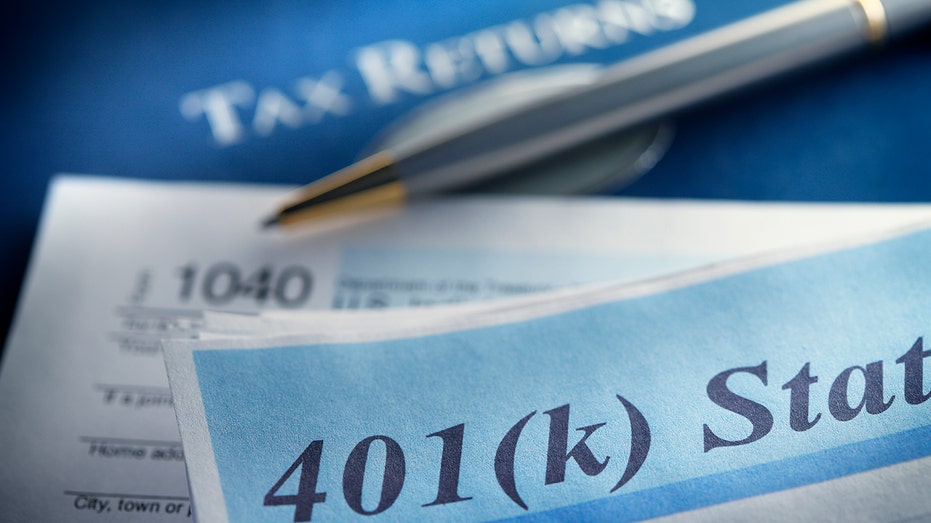Princeton economist warns Biden’s tax on stock buybacks will hurt your 401(k)
Biden administration proposes billionaire tax, bigger levy on stock buybacks
Burton Malkiel: It's exactly the kind of thing you want from a capitalist system
Author and Princeton Economics professor Burton Malkiel on a proposed tax on stock buybacks and the hidden costs and dangers on 'Kudlow.'
As the Biden administration proposes higher taxes and levies for corporate stock buybacks, one Wall Street expert and Princeton University economics professor is warning the policy move could hurt low and middle-income families the most.
"What people don't realize is that, sure, poor people don't own a lot of stock directly, they own very little. But most of us all own stock indirectly through our 401(k)," Burton Malkiel told FOX Business’ Larry Kudlow on Monday. "These are the people who are going to be hurt. It's all the mutual funds that we all own, that own a lot of stock."
Malkiel’s comments come as President Joe Biden revived his calls for higher taxes on billionaires and proposed quadrupling the levy on corporate stock buybacks during his State of the Union address.
"I’m a capitalist. But just pay your fair share," Biden said in the speech. "And I think a lot of you at home agree with me that our present tax system is simply unfair."
I.R.S. REVEALS IF YOU OWE TAXES ON GOVERNMENT RELIEF CHECKS
The White House has provided few details about the latest iteration of the proposal, but said that it would set a minimum tax for the wealthiest Americans. The proposal also considers quadrupling a 1% levy on corporate stock buybacks. Democrats passed the tax last year as part of the Inflation Reduction Act in hopes of curbing businesses' tendency to repurchase their own shares from investors.

The Biden administration proposing higher wealth taxes and levies on corporate stock buybacks "is just wrong," Princeton University economics professor Burton Malkiel said on "Kudlow" Monday, February 13, 2023. (iStock / iStock)
In 2019, stock buybacks hit a record $1 trillion, according to the SEC. In the third quarter of 2022, buybacks among companies listed on the S&P totaled about $210 billion, down about 10% from the same period one year ago, according to S&P analyst Howard Silverblatt.
In the second quarter, companies spent about $220 billion, compared with roughly $281 billion in the first.
If the 1% tax had been in place during the third quarter, companies would have owed roughly $1.93 billion to Uncle Sam, according to The Wall Street Journal.
Investment strategist on the impact of higher buyback tax on stocks
Janney Montgomery Scott chief investment strategist Mark Luschini joins 'Maria Bartiromo's Wall Street' to weigh in on President Biden's push to quadruple the stock buyback tax.
While the Biden administration might be trying to target the wealthiest 1% of Americans with these tax proposals, Malkiel warned that’s "just wrong," and more penalties for stock buybacks is anti-capitalist.
"In fact, it almost all goes back into the system, and it goes back into the system in a particularly efficient way because companies buy back their stock when they don't have good investment opportunities," the economist explained. "And by giving the money back in buybacks, that money flows back into the stock market in newer companies, in entrepreneurial companies. And it's exactly the kind of thing that you want from a capitalist system."
GET FOX BUSINESS ON THE GO BY CLICKING HERE
House GOP member aims to revolutionize tax system
House Budget Committee member Rep. Buddy Carter, R-Ga., discusses his Fair Tax Act and responds to Biden claiming Republicans want to end Social Security and Medicare on 'The Big Money Show.'
Malkiel, who also authored "A Random Walk Down Wall Street" nearly 50 years ago, expressed he still firmly believes investors are "better off" looking at the long-term by buying and holding a broad-based index – even in this volatile market.
"Frankly, even better than the S&P 500, I would do a total stock market fund. I want you to also have the small entrepreneurial companies that are doing a lot of the growth in the country. I want you to be in the new companies that are doing all of the innovations. This is exactly what you ought to be doing," the economist advised. "So [the] broader, the better. Buy an index fund. You want to go and buy some individual stocks around the edges? God bless you, go do it. But you can do it far more safely if the core of your portfolio is indexed."
FOX Business’ Megan Henney contributed to this report.























